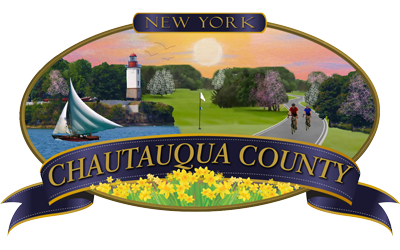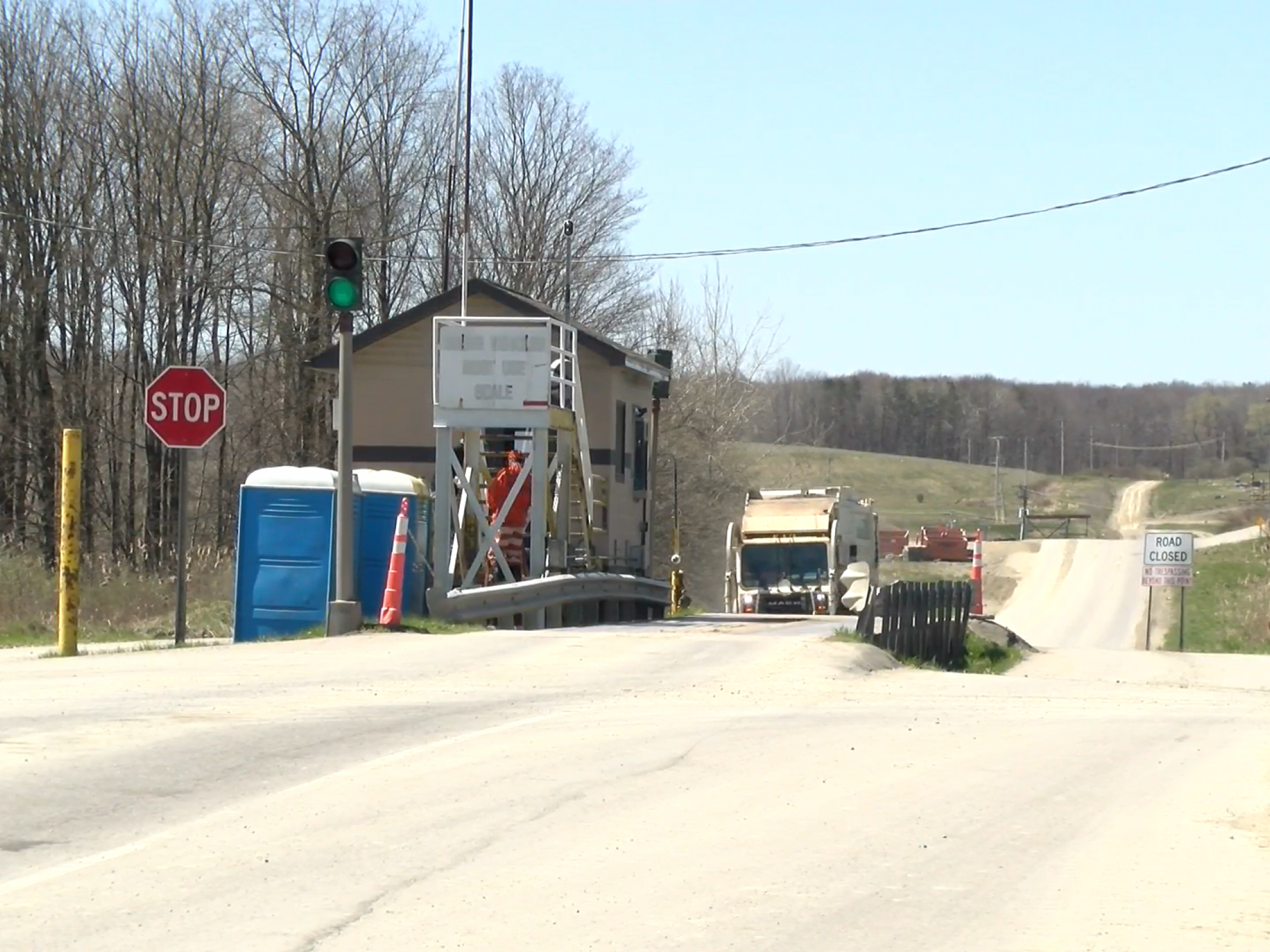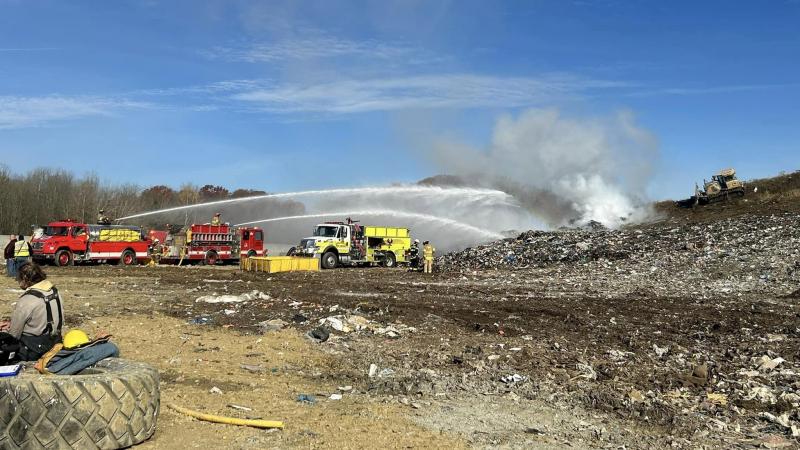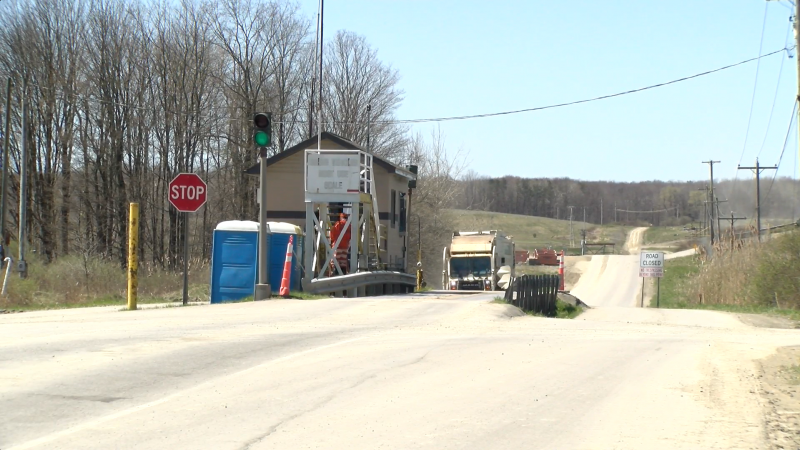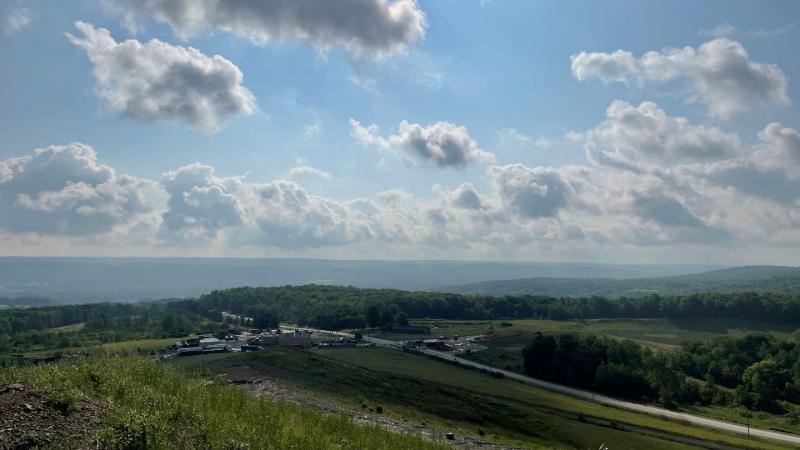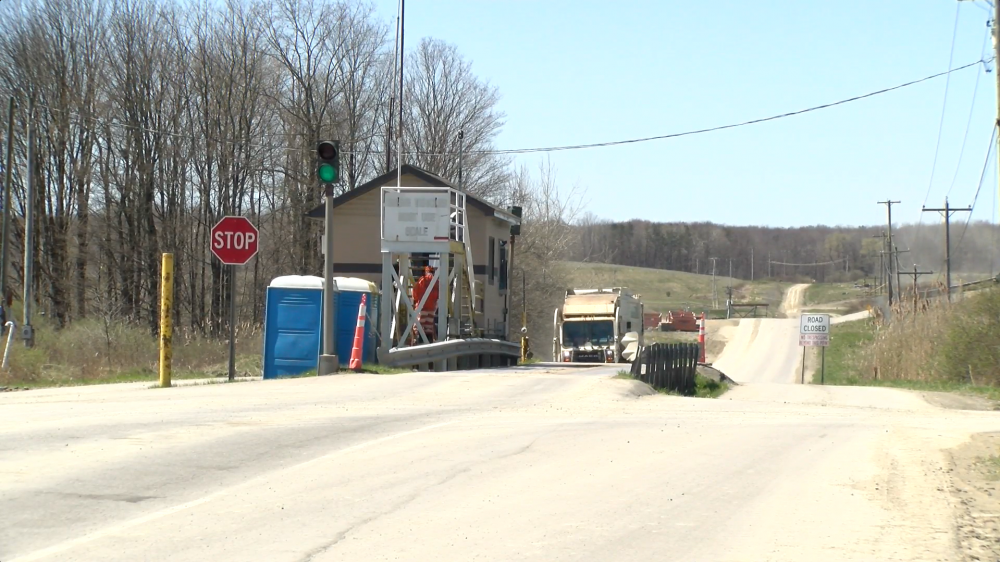
(The Chautauqua County Landfill in Ellery, NY. Image by Justin Gould / Media Information Officer.)
ELLERY, NY – In light of the recent fire at Chautauqua County’s landfill, it’s crucial to remember that each of us bears a personal responsibility for our environment. Our daily actions significantly impact the world around us, and it’s important to be mindful of this.
One key aspect of our responsibility is learning how to properly and safely handle the waste we produce, whether it's from our homes or workplaces. Understanding the correct disposal methods is essential for minimizing environmental harm and maintaining community health.
Chautauqua County benefits from owning and operating its landfill. This county-run facility allows for effective management of the waste stream, helping to keep waste disposal costs lower for residents compared to much of the state and country. Additionally, local control ensures the long-term sustainability of this vital service for our community.
The County Landfill is a Municipal Solid Waste (MSW) landfill. MSW Landfills are the most common types of landfills. They can accept most of the NON-HAZARDOUS types of waste materials produced from day to day living. This includes mixed waste materials which are NOT recyclable that are generated by residential, commercial, and institutional customers.
The types of acceptable materials an MSW landfill can accept are:
- MSW-Non-hazardous household and commercial refuse. (non-recyclable: cardboard, paper, plastic, glass, textiles, food & non-liquid putrescible organics)
- Construction Materials-such as cardboard, drywall, flooring, roofing materials, wood, tile and windows.
- Demolition Materials-concrete, asphalt, glass, ceramic materials
- Contaminated Soils-Tested to certain limits
- Furniture
- Carpets (cut in 3ft rolls)
- Non-rechargeable household batteries
MSW landfills are regulated and monitored by both Federal and State authorities. These regulations have strict prohibitions for certain types of waste. These prohibitions are due to the many dangers and hazards certain wastes can create.
Hazardous waste is defined as a waste with properties that make it potentially dangerous or harmful to human health or the environment. Hazardous wastes can be liquids, solids, or contained gases. The four characteristics of hazardous waste are: ignitability • corrosivity • reactivity • toxicity.
Any Waste with certain levels of hazardous characteristics is unacceptable at an MSW landfill.
The types of waste materials NOT accepted at an MSW Landfill are:
- All liquid waste (less than 20% SOLID) – fuels, oils, antifreeze, acid, etc.
- Rechargeable batteries (lithium-ion, lead-acid (automotive), nickel-cadmium, nickel-metal hydride, etc.)
- Household hazardous waste-Corrosives, flammables, fluorescent tubes, pesticides, solvents, cleaners, paint, oil filters, mercury (thermometers & thermostats) other materials or products containing volatile chemicals
- Medical waste- Needles, lancets, controlled medicines
- Explosive & Flammable waste- explosives, Hot ashes (fire pits, fire places, grills), fireworks, flares, ammunition
- Gas cylinders and fuel tanks
- Freon containing appliances- air conditioners, refrigerators, dehumidifiers, etc.
- Tires
- Radioactive waste
- Electronic waste-items that use a plug, battery or power cord (TVs, mobile phones and computers).
By keeping unacceptable and dangerous wastes out of our local landfill, we can ensure the benefits of low-cost waste disposal for many years to come.
